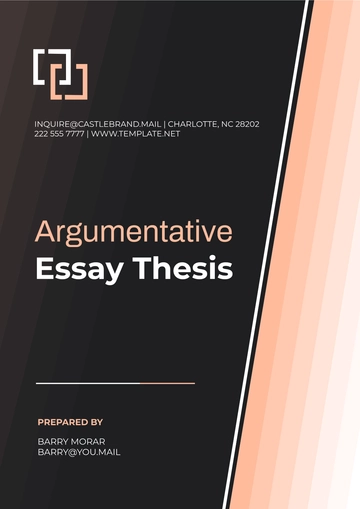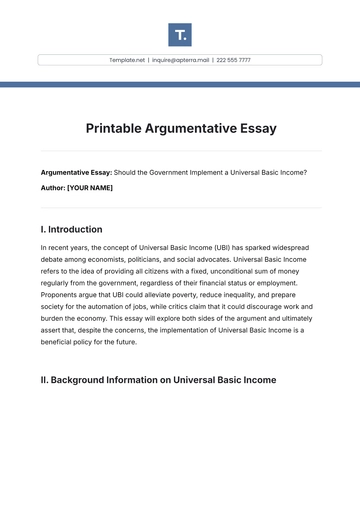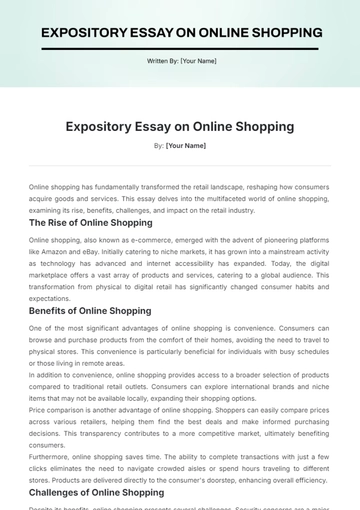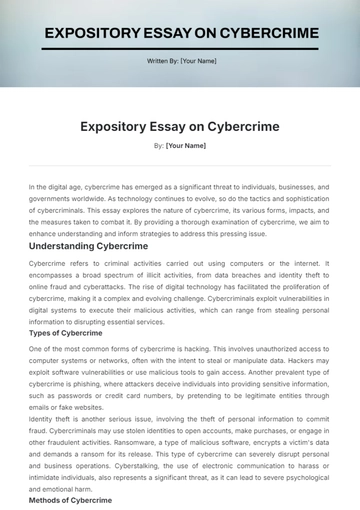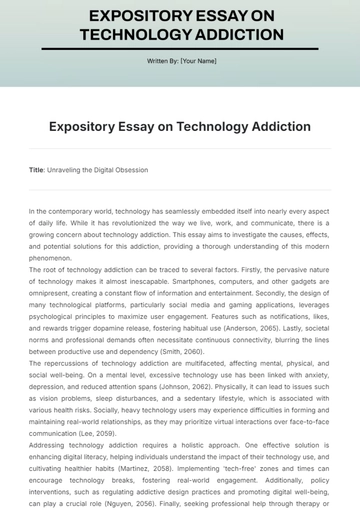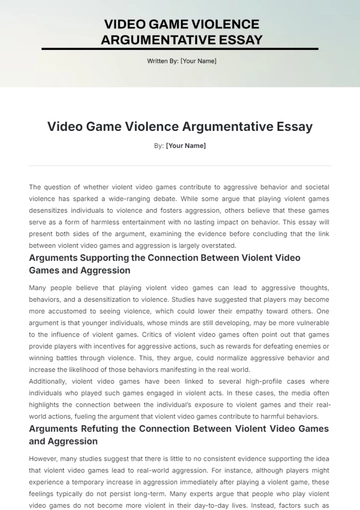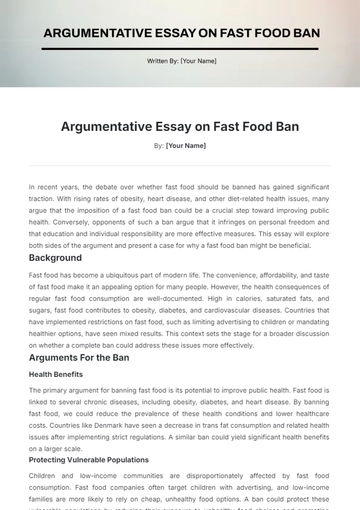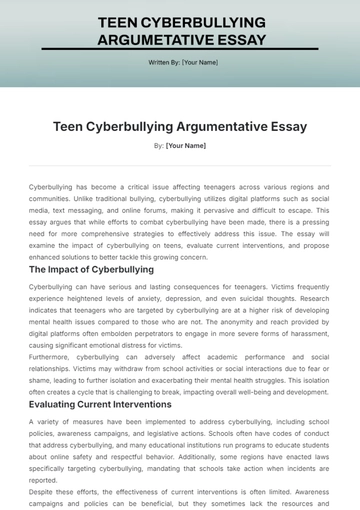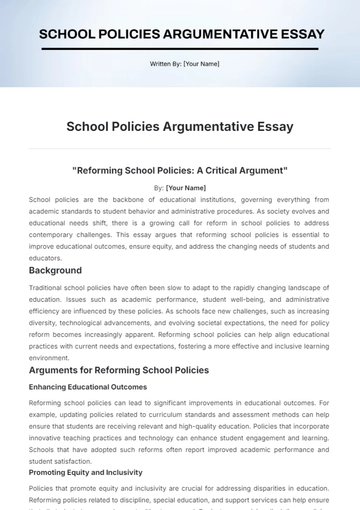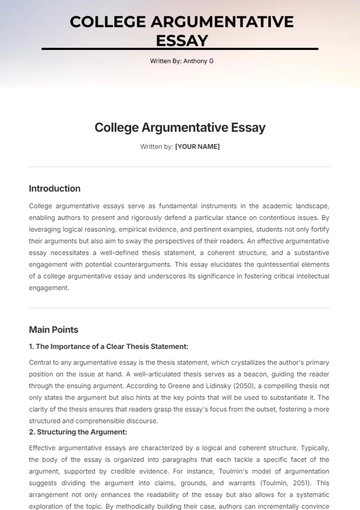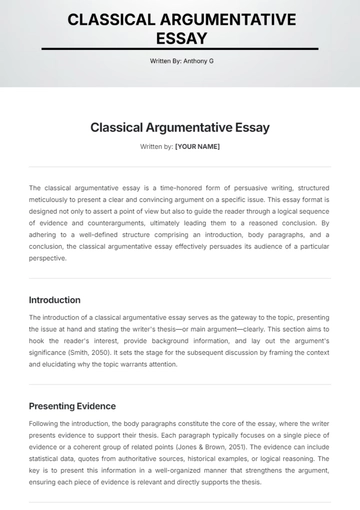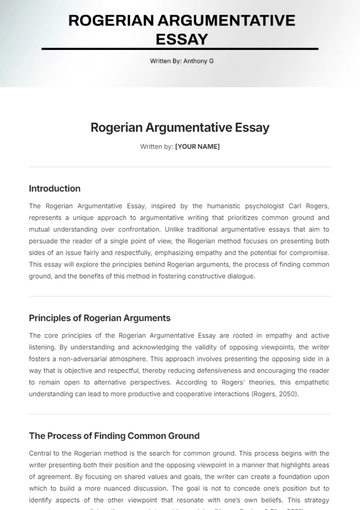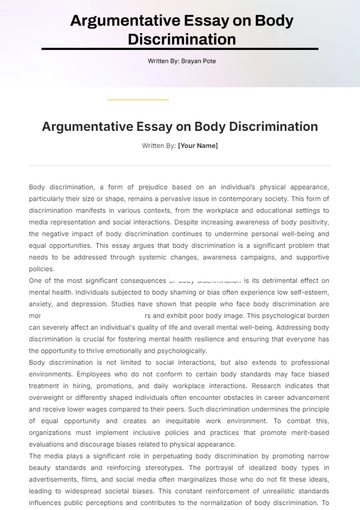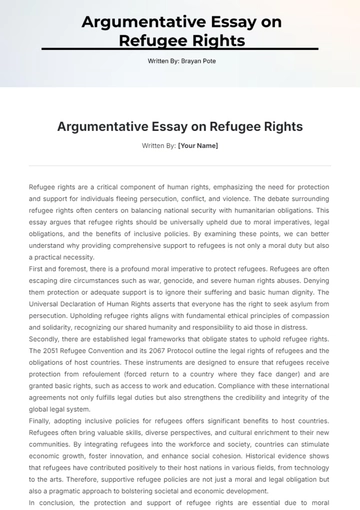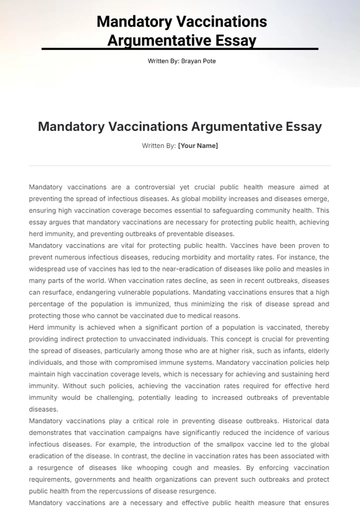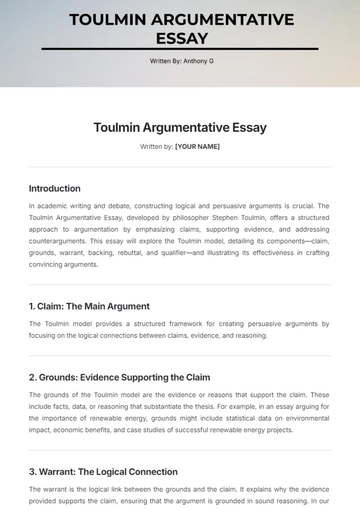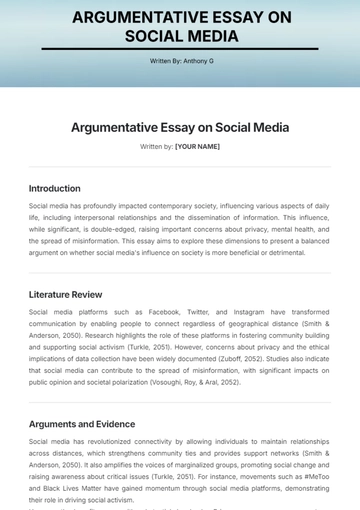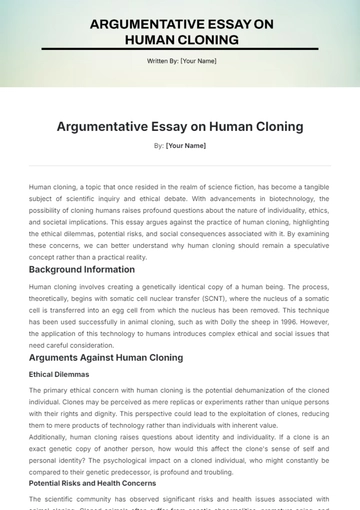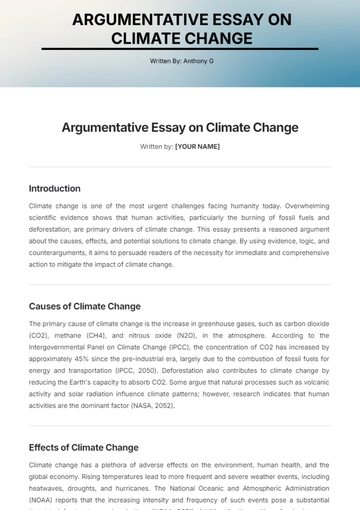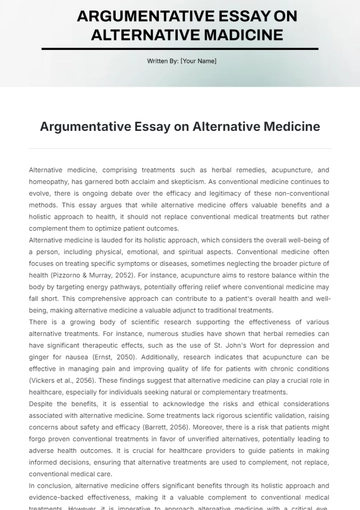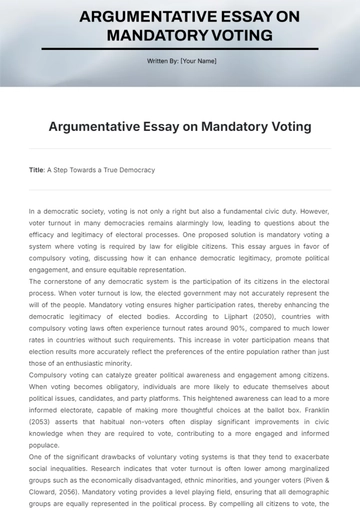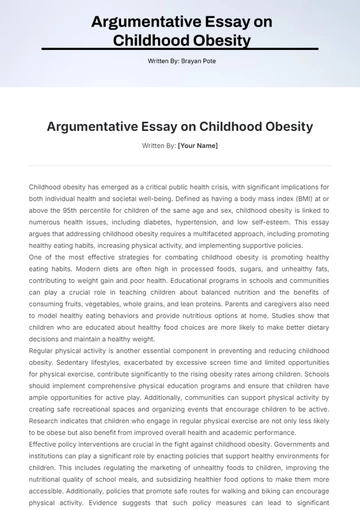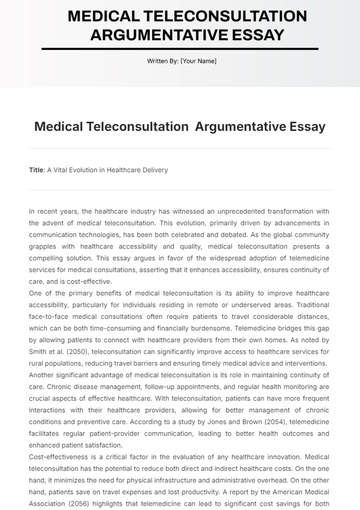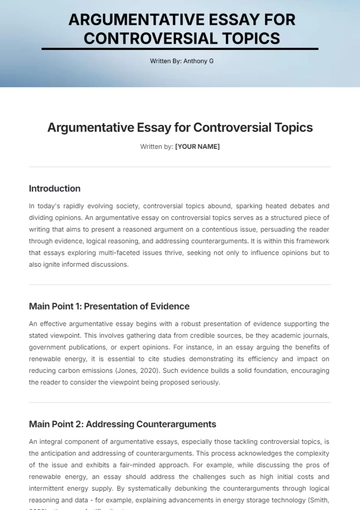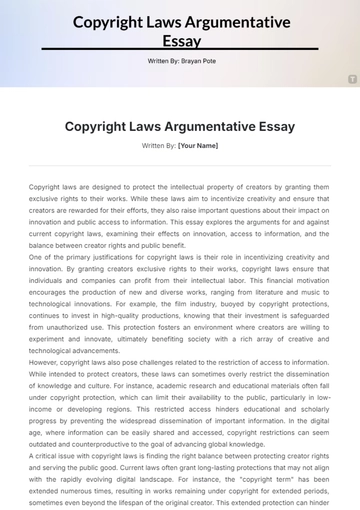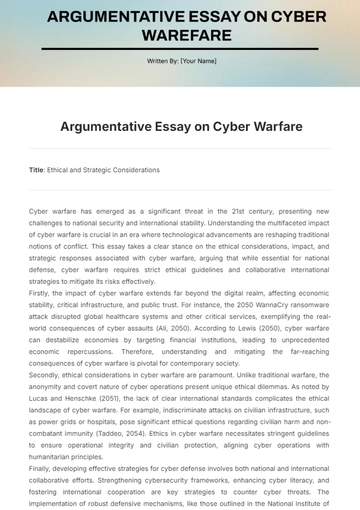Free Argumentative Essay on Privacy Rights
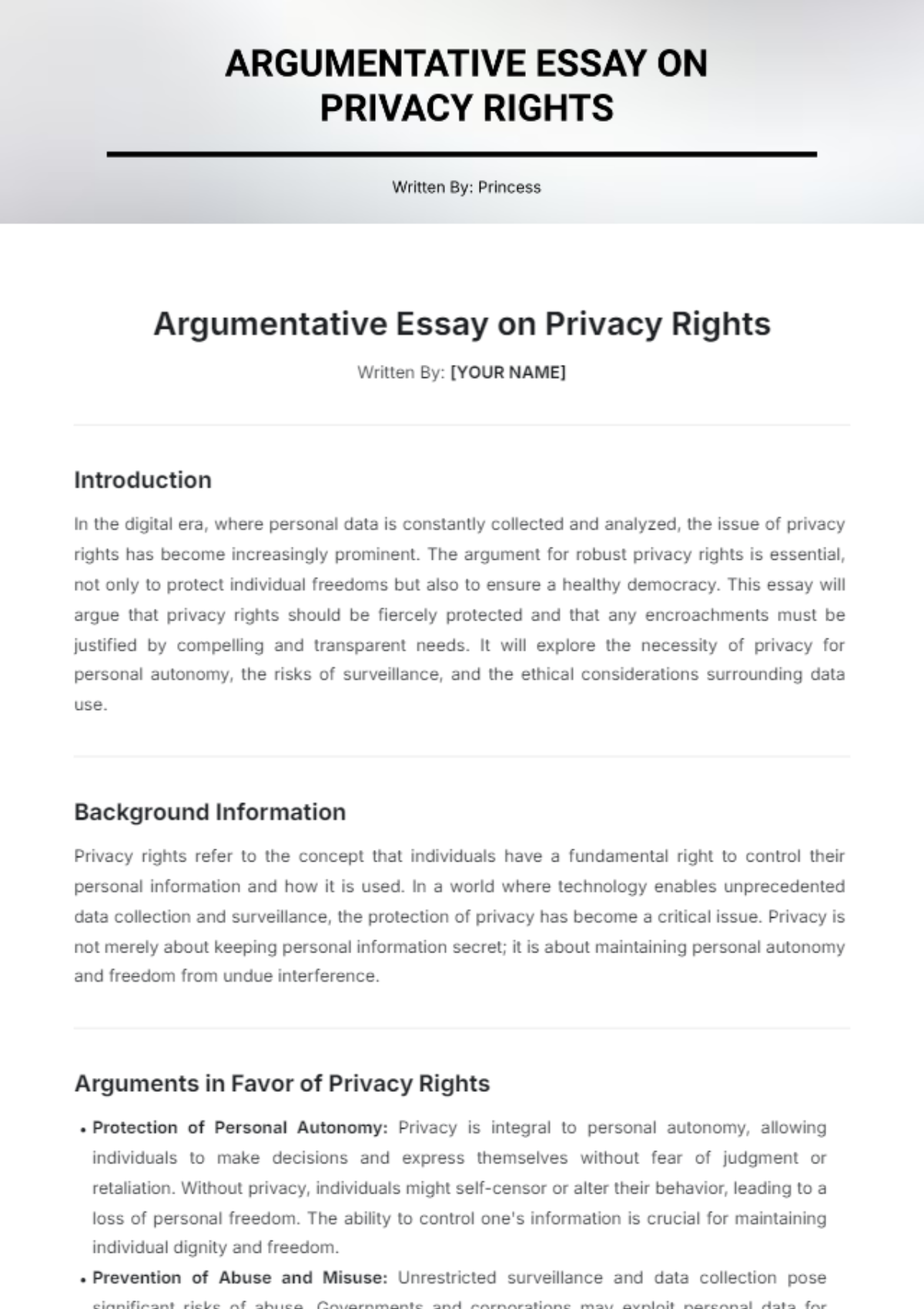
Written By: [YOUR NAME]
Introduction
In the digital era, where personal data is constantly collected and analyzed, the issue of privacy rights has become increasingly prominent. The argument for robust privacy rights is essential, not only to protect individual freedoms but also to ensure a healthy democracy. This essay will argue that privacy rights should be fiercely protected and that any encroachments must be justified by compelling and transparent needs. It will explore the necessity of privacy for personal autonomy, the risks of surveillance, and the ethical considerations surrounding data use.
Background Information
Privacy rights refer to the concept that individuals have a fundamental right to control their personal information and how it is used. In a world where technology enables unprecedented data collection and surveillance, the protection of privacy has become a critical issue. Privacy is not merely about keeping personal information secret; it is about maintaining personal autonomy and freedom from undue interference.
Arguments in Favor of Privacy Rights
Protection of Personal Autonomy: Privacy is integral to personal autonomy, allowing individuals to make decisions and express themselves without fear of judgment or retaliation. Without privacy, individuals might self-censor or alter their behavior, leading to a loss of personal freedom. The ability to control one's information is crucial for maintaining individual dignity and freedom.
Prevention of Abuse and Misuse: Unrestricted surveillance and data collection pose significant risks of abuse. Governments and corporations may exploit personal data for purposes beyond the original intent, including political manipulation or commercial exploitation. History has shown that unchecked surveillance can lead to authoritarian practices and a chilling effect on free speech.
Ensuring Trust in Digital Interactions: Privacy rights are fundamental to maintaining trust in digital platforms. If users believe their data is secure and handled ethically, they are more likely to engage openly and honestly online. A breach of privacy can erode trust and discourage people from participating in digital environments.
Counterarguments
National Security Concerns: One argument against strong privacy protections is the need for surveillance to ensure national security. Proponents of surveillance claim that monitoring communications can help prevent terrorist activities and other threats. However, this argument often overlooks the potential for overreach and abuse. Privacy safeguards can be designed to balance security needs with individual rights.
Commercial Benefits: Another argument is that data collection drives economic growth and innovation. Companies argue that personal data is vital for creating personalized services and improving user experiences. While data can indeed drive innovation, it should not come at the expense of individuals' rights. Companies must adopt ethical data practices and ensure transparency in how data is used.
Conclusion
In conclusion, privacy rights are a cornerstone of personal autonomy and a healthy democracy. While there are valid concerns about security and economic benefits, these should not override the fundamental need for privacy. Effective privacy protections can be implemented alongside security measures and commercial activities, ensuring that individual rights are preserved. As technology continues to evolve, maintaining a balance between privacy and other societal needs remains a critical challenge. Upholding privacy rights not only protects individuals but also strengthens the fabric of a democratic society.
- 100% Customizable, free editor
- Access 1 Million+ Templates, photo’s & graphics
- Download or share as a template
- Click and replace photos, graphics, text, backgrounds
- Resize, crop, AI write & more
- Access advanced editor
Examine the intricacies of privacy in the digital age with Template.net's Argumentative Essay on Privacy Rights Template. This fully editable and customizable template helps you present a well-reasoned case about privacy laws, technology, and individual freedoms. Our AI Editor Tool allows you to easily modify the content to fit your specific stance, ensuring your essay is clear and persuasive.
